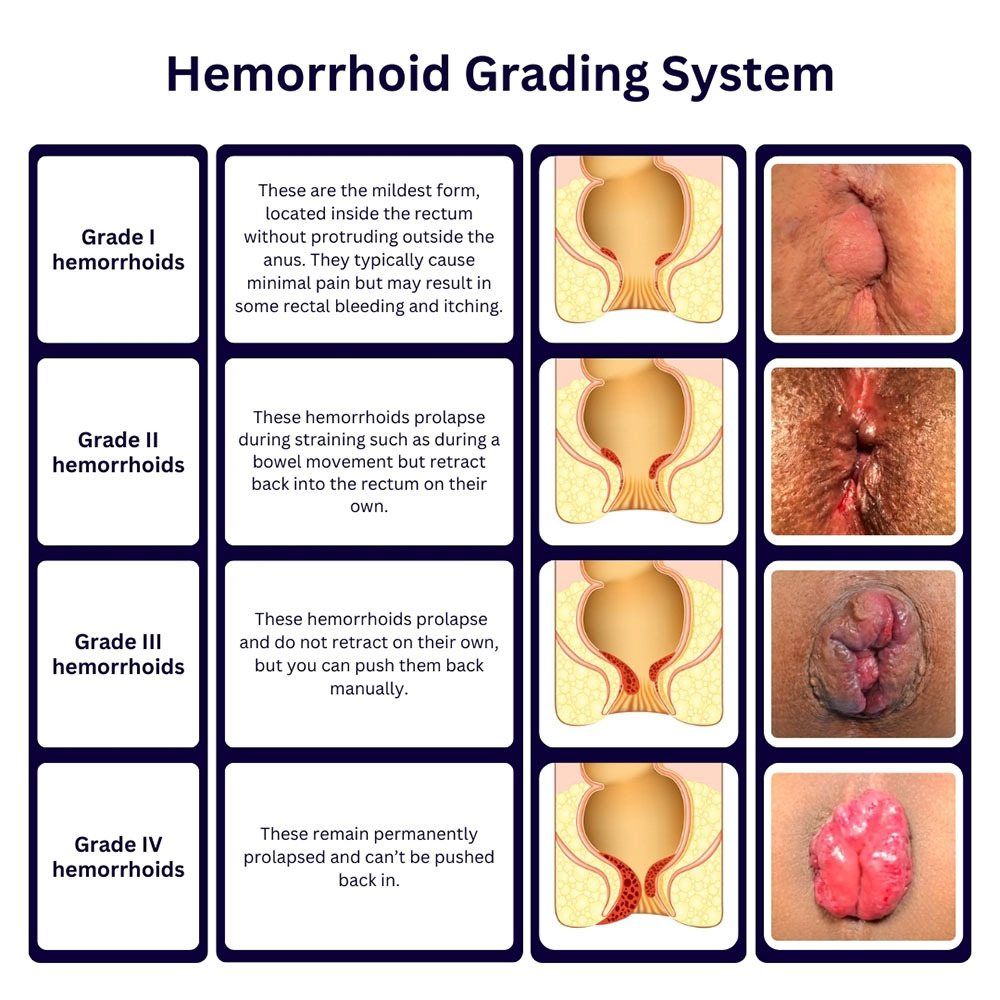
Hemorrhoids are uncomfortable vein conditions that interrupt your daily life. Without proper treatment at your Brooklyn vein center, they can get worse and lead to serious consequences. The hemorrhoid grading system helps your vein specialist in Brooklyn determine the severity of your hemorrhoids and the best line of treatment. Call the best vein clinic in Brooklyn at Astra Vein & Fibroid Treatment Center for an appointment as soon as possible. The sooner you go in for treatment, the faster your condition can heal.
The hemorrhoid grading system is a tool your vein specialist in Brooklyn uses to determine the severity of your internal and external hemorrhoids. Hemorrhoids are swollen veins in your rectum or anus that cause discomfort, pain and even bleeding. This system classifies them based on how much they prolapse or slip out of your anus. Your vein doctor in Brooklyn then chooses the appropriate treatment, which might include hemorrhoid embolization to eliminate your symptoms.
Astra Vein & Fibroid Treatment Center is a Brooklyn vein clinic that provides a range of services to address many vein conditions, including varicose vein treatment in Brooklyn and a range of treatments for:
Dr. George Bolotin has extensive experience as a vascular specialist in Brooklyn, NY. He and his team perform a full range of treatments for healthy veins and treatments for uterine fibroids.
The hemorrhoid grading system breaks internal hemorrhoids down into four grades.
These include:
This system is specifically used to grade internal hemorrhoids. Signs of thrombosed hemorrhoids are not typically classified within the hemorrhoid grading system. These hemorrhoids are considered an acute and more severe form of external hemorrhoids.

Your doctor starts by asking about your symptoms and medical history and whether you’ve noticed blood during bowel movements or felt a lump near your anus. They may perform a physical examination to check for internal hemorrhoids or signs of external hemorrhoids. This exam includes a visual inspection by looking at the anus and surrounding area to identify any external hemorrhoids.
For internal hemorrhoid diagnosis, your doctor may perform procedures like:
Your doctor then grades the hemorrhoids based on the extent of their prolapse. These procedures are essential for diagnosing internal hemorrhoids and distinguishing them from other conditions such as anal fissures, polyps or rectal cancers. The vein center in Brooklyn determines a proper treatment that can range from lifestyle changes to surgery.
Grade I hemorrhoids treatment is usually easy, as sometimes these hemorrhoids even heal on their own. Your vein specialist in Brooklyn recommends simple home remedies and over-the-counter treatments like adding fiber to your diet, drinking more water and using over-the-counter creams to reduce swelling.
You can manage grade II hemorrhoids with non-surgical treatments, such as:
These procedures are effective, but may not provide you lasting relief.
If your hemorrhoids are severe, meaning they’re grade III or grade IV, your Brooklyn vein specialist may recommend surgical procedures to manage the prolapse and relieve pain, such as:
You may experience sudden and severe pain along with swelling around your anus if you don’t receive sufficient treatment. The affected area may also appear bluish or discolored. As hemorrhoids progress in severity, the pain can become debilitating. In Grade III and IV hemorrhoids, your pain may become constant and can interfere with daily activities such as sitting, walking and even having bowel movements.
Other complications of leaving hemorrhoids untreated include:
Learn everything you need to know about hemorrhoids at your vein clinic in Brooklyn, whether you’re curious about what kind of doctor treats hemorrhoids or when you should see a doctor for your condition.
Contact Astra Vein & Fibroid Treatment Center, your Brooklyn vein center, for an evaluation and treatment. Your physician explains how long hemorrhoids last and how to get rid of them fast.
Vein & Vascular Medical Care
4209 Ave U, Suite A.
Brooklyn, NY 11234
(347) 934-9068
Vein & Vascular Medical Care
869 E Tremont Ave
Bronx, NY 10460
(929) 447-4563